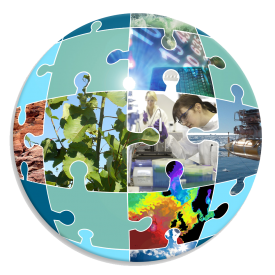Background
SPITFIRE creates an innovative multi-disciplinary partnership for the effective training of scientists capable of taking on the global environmental challenges of the 21st century.
The Challenge
A knowledge-based economy can only maintain its position in a global society if it is at the forefront of scientific and technical expertise. Making informed responses and finding solutions to challenges as varied as climate change, natural hazards, biodiversity loss, energy generation and the search for strategic mineral resources relies on developing a supply of highly-qualified and well-educated young scientists and technologists. Simultaneously, new technologies and techniques are driving rapid expansions in environmental data generation. Effective management, processing and synthesis of this information will be both a major challenge and opportunity for 21st century environmental science.
Equipping the next generation of scientific leaders with the skills they will need to tackle these challenges is arguably the most important function of an environmental research organisation.

The SPITFIRE Doctoral Training Partnership
To meet these challenges, the University of Southampton and hosting partners submitted a joint bid to NERC to create an innovative multi-disciplinary DTP: the Southampton Partnership for Innovative Training of Future Investigators Researching the Environment ‘SPITFIRE’ – the name of which reflects the production of the famous aircraft within sight of the partnership hub at NOCS.
The SPITFIRE DTP received more than £6M funding from NERC in November 2013 and, together with supporting co-funding across the University and hosting partners, aims to support a cohort of up to 30 students a year over five years. SPITFIRE will equip the next generation of environmental science leaders with the skills and knowledge they will need to exploit and develop diverse new technologies (e.g., autonomous platforms, novel sensors, next-generation sequencing) and techniques (e.g., high-level numeracy, Big-Data handling, numerical modelling, crowd sourcing, bioinformatics, machine learning) and effectively apply these tools in tackling the key environmental science challenges of the future.
Equality, Diversity and Inclusion
We recognise structural and long-standing issues with under-representation in postgraduate study at national and international levels.
We work closely with our DTP and other partners and across the University to monitor best practice and share experiences and expertise, aiming to create an inclusive research community, recognise structural barriers and privileges, and continuously improve equality and equity in all aspects of scientific research and education.
We recognise that different groups face different challenges in work and personal lives, and (in line with the University of Southampton’s Strategic Plan on Equality, Diversity and Inclusion) our EDI mission is to create an inclusive university community. Our vision is that this is a community where, as an individual student or member of staff:
- You feel welcomed for who you are, and this is a place where you feel that you can influence the way we do things now and in the future
- You feel included and supported to reach your true potential
- You are intellectually stretched and challenged
- You value the diversity of the wider community and play your part in supporting the mission of inclusivity.










